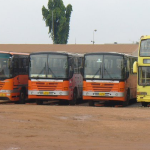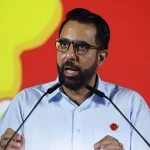The Progressive People’s Party (PPP) is seeking to increase Ghana’s renewable energy contribution to the national energy mix from the current 10% to 20% should it win power in the 2020 general elections.
This was made known by the party’s Director for Research and Spokesperson for Energy and Sustainable jobs, Paul Agyemang Bioh during the maiden edition of the Energy Manifesto Dialogue organized by the Institute for Energy Security (IES).
The dialogue sought to bring together industry players in Ghana’s energy sector to interrogate the various policies and plans of the political parties within the country’s energy sector. The platform also gave the opportunity to drive the interest and make necessary recommendations in Ghana’s transition from fossil fuels to renewable energy.
Speaking at the event, Mr Agyemang Bioh intimated that the proposal by the PPP is in tandem with the current global trajectory of events in the energy sector that have been catapulted by the global pandemic that struck most parts of the globe from February this year.
He said, “the PPP is pushing for not 10 per cent but 20 per cent of renewable energy capacity… in our electricity mix.”
Ghana’s renewable energy capacity in the generation mix was pegged at 10% by 2020 under the Strategic National Energy Plan (SNEP).
However, by the end of 2017, the strategy was revisited to be found that only 0.5% of renewable energy penetration to the overall national supply out of 10% of the target has been achieved.
This incidentally led to the formulation of Ghana’s Renewable Energy Master Plan in 2019.
The plan constitutes an investment-focused framework for the development and promotion of the country’s rich renewable energy resources to propel economic growth, improve social life and reduce climate change effects.
The plan, when implemented, is expected to help the country to increase the penetration of renewable energy in the national energy generation mix from the 2015 baseline of 42.5 MW to 1363.63 MW (with grid-connected systems totalling 1094.63 MW), reduce the dependence on biomass as the main fuel for thermal energy applications, provide renewable energy-based decentralized electrification options in 1,000 off-grid communities and promote local content and local participation in the renewable energy industry achieve the following targets by 2030.
Speaking on partnerships and participation in the sector’s growth, the PPP said it would “work to limit unwarranted political administration interference in the non-policy aspects of the energy sector in Ghana” as it “seeks to work with players in the energy sector to optimize the existing energy economy for rapid industrialization.”















